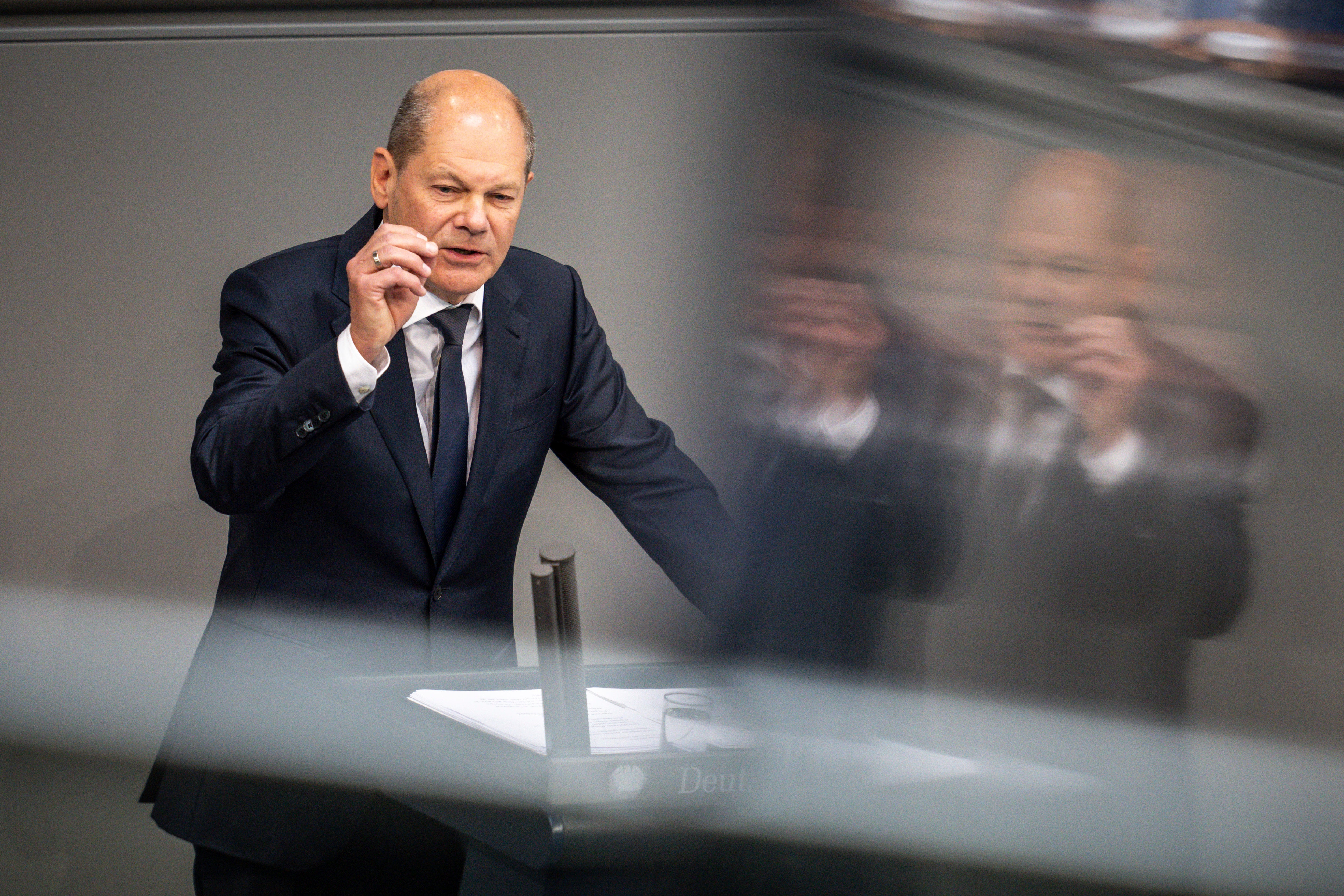Germany's Scholz seeks broad alliance to curb inflation
German Chancellor Olaf Scholz says he wants to join employers and labor unions in a “concerted action” to find ways of cushioning the effects of rising prices while preventing inflation

Your support helps us to tell the story
From reproductive rights to climate change to Big Tech, The Independent is on the ground when the story is developing. Whether it's investigating the financials of Elon Musk's pro-Trump PAC or producing our latest documentary, 'The A Word', which shines a light on the American women fighting for reproductive rights, we know how important it is to parse out the facts from the messaging.
At such a critical moment in US history, we need reporters on the ground. Your donation allows us to keep sending journalists to speak to both sides of the story.
The Independent is trusted by Americans across the entire political spectrum. And unlike many other quality news outlets, we choose not to lock Americans out of our reporting and analysis with paywalls. We believe quality journalism should be available to everyone, paid for by those who can afford it.
Your support makes all the difference.German Chancellor Olaf Scholz said Wednesday he wants to join employers and labor unions in a “concerted action” to find ways of cushioning the effects of rising prices while preventing a spiral of inflation in Europe's biggest economy.
Germany, like other countries in Europe and beyond, already has seen inflation accelerate sharply since Russia's invasion of Ukraine pushed up fuel and food prices. An official estimate this week showed the country's annual inflation rate jumping to 7.9% in May, the highest rate since the winter of 1973-1974.
“These price increases are probably still down to one-time shocks, but we must take care that this doesn't turn into a long-term development with excessive inflation rates,” Scholz told the German parliament.
He said that debt-financed government aid was not a long-term solution, especially since Germany is aiming next year to honor a rule limiting its public borrowing after it was suspended during the coronavirus pandemic.
In Germany, wage deals are typically hammered out in negotiations between employers’ organizations and unions that cover a whole industrial sector.
Scholz pointed to a recent agreement in the chemical industry as a “very interesting” solution. Employers and worker representatives agreed on a one-time payment of 1,400 euros ($1,500) per employee to help counter rising prices. But they also postponed talks on a formal wage increase until October, hoping the economic outlook will be clearer by then.
Scholz said the government plans to call on employers, labor unions and worker representatives to come together with the government in a “concerted action against price pressure.” The proposal echoes a similar effort in 1967 to counter West Germany's first economic crisis.
“Everyone will have to contribute something” to address the current situation, the chancellor said.
___
Follow AP's coverage of the Ukraine war at https://apnews.com/hub/russia-ukraine